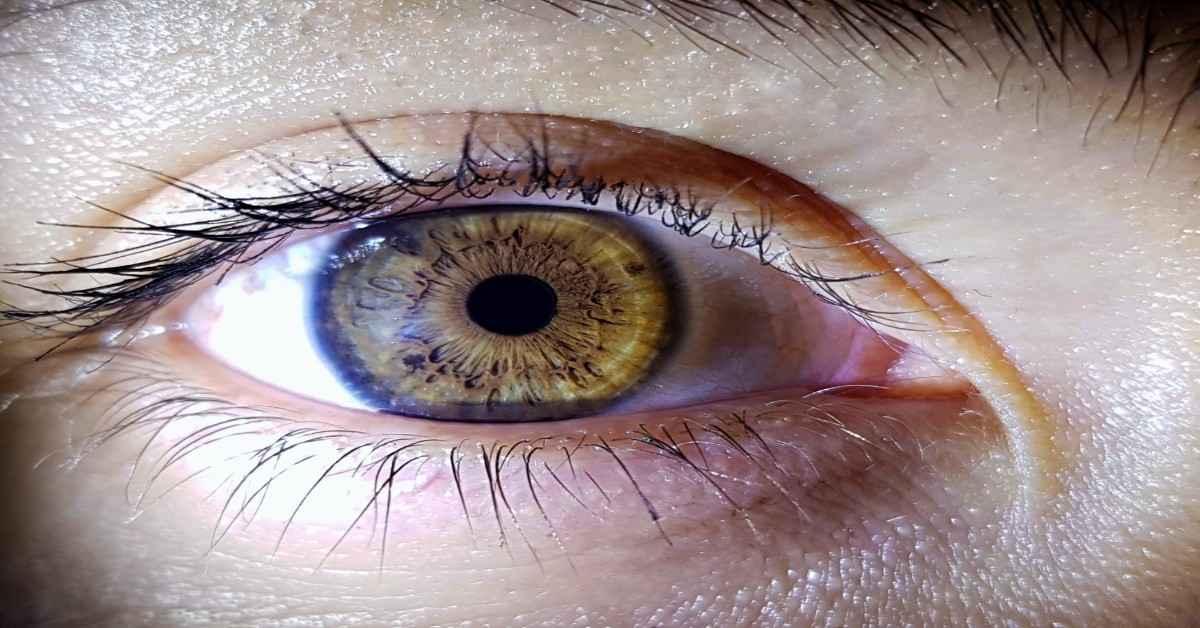Our eyes are the windows to the world, yet we often take them for granted. Maintaining good vision and preventing eye-related issues is heavily influenced by what we eat. Certain foods are powerhouses of nutrients that can significantly benefit eye health.
Click Here: Top 10 Foods for Healthier Eyes: Are You Eating These Daily?
Why is Nutrition Important for Eye Health?
Your eyes require specific vitamins, minerals, and antioxidants to function optimally. Nutrients like vitamin A, C, E, zinc, omega-3 fatty acids, and lutein play vital roles in preserving eyesight. Regular consumption of these nutrients can:
- Prevent age-related macular degeneration (AMD).
- Reduce the risk of cataracts.
- Combat dry eye syndrome.
- Shield the eyes from oxidative stress.
Here, we explore the top 10 foods for eye health and how they can enhance your vision and protect your eyes from common conditions.
1. Carrots
Carrots have long been associated with better vision, and there’s a solid reason for that. Packed with beta-carotene, a type of Vitamin A, carrots help prevent night blindness and support the health of the cornea.
Benefits:
- Improves low-light vision.
- Protects against age-related eye diseases.
How to Include in Your Diet:
- Add grated carrots to salads.
- Blend into soups or smoothies.
- Snack on raw carrot sticks with hummus.
2. Spinach and Other Leafy Greens
Spinach, kale, and Swiss chard are rich in lutein and zeaxanthin, antioxidants that protect the eyes from harmful light and oxidative stress.
Benefits:
- Reduces the risk of cataracts.
- Shields eyes from UV damage.
How to Include in Your Diet:
- Blend into green smoothies.
- Use as a base for salads.
- Add to omelets, soups, or pasta dishes.
3. Fish
Fatty fish like salmon, mackerel, and tuna are excellent sources of omega-3 fatty acids, which are vital for maintaining the structural health of the retina.
Benefits:
- Prevents dry eyes.
- Reduces the risk of macular degeneration.
How to Include in Your Diet:
- Grill salmon fillets for a nutritious dinner.
- Add canned tuna to sandwiches or salads.
- Enjoy sardines as a healthy snack.
4. Eggs
Eggs are a powerhouse of nutrients for eye health, containing lutein, zeaxanthin, Vitamin A, and zinc.
Benefits:
- Supports the health of the cornea.
- Protects eyes from harmful blue light.
Read More: Why adding Ginger to Your Winter Recipes is a Game-Changer?
How to Include in Your Diet:
- Start your day with scrambled eggs.
- Add boiled eggs to salads or grain bowls.
- Include in sandwiches or wraps.
5. Oranges and Citrus Fruits
Citrus fruits like oranges, lemons, and grapefruits are rich in Vitamin C, a potent antioxidant that strengthens blood vessels in the eyes.
Benefits:
- Reduces the risk of cataracts.
- Slows the progression of age-related macular degeneration.
How to Include in Your Diet:
- Enjoy as a refreshing snack.
- Squeeze fresh lemon juice into water or tea.
- Add orange segments to salads.
6. Nuts and Seeds
Almonds, walnuts, and sunflower seeds are packed with Vitamin E, which protects eye cells from free radicals.
Benefits:
- Slows the progression of age-related eye conditions.
- Keeps tear glands functioning optimally.
How to Include in Your Diet:
- Sprinkle seeds on yogurt or oatmeal.
- Snack on a handful of mixed nuts.
- Add to baked goods or smoothies.

7. Sweet Potatoes
Sweet potatoes are another great source of beta-carotene, offering similar benefits to carrots.
Benefits:
- Promotes night vision.
- Reduces the risk of eye infections.
How to Include in Your Diet:
- Roast sweet potato slices as a side dish.
- Mash as a healthier alternative to regular potatoes.
- Blend into soups or stews.
8. Blueberries
Blueberries are rich in anthocyanins, compounds that improve blood flow to the eyes and enhance overall vision.
Benefits:
- Protects against retinal damage.
- Improves night vision.
How to Include in Your Diet:
- Add to breakfast cereals or oatmeal.
- Blend into smoothies.
- Enjoy as a midday snack.
9. Broccoli
Broccoli contains a combination of Vitamin C, lutein, and zeaxanthin, making it a triple threat against vision problems.
Benefits:
- Reduces oxidative stress on the eyes.
- Helps maintain the health of retinal cells.
How to Include in Your Diet:
- Stir-fry with garlic and olive oil.
- Add to casseroles or pasta dishes.
- Steam as a nutritious side dish.
10. Bell Peppers
Bell peppers, especially the red variety, are loaded with Vitamin C and other antioxidants.
Benefits:
- Supports the health of blood vessels in the eyes.
- Reduces the risk of cataracts and macular degeneration.
How to Include in Your Diet:
- Slice raw for a crunchy snack.
- Add to stir-fries or fajitas.
- Roast and use in sandwiches or wraps.
Click Here: Can Massage Improve Your Circulation?
Tips for Maximizing Eye Health:
- Stay Hydrated: Proper hydration is crucial for preventing dry eyes.
- Avoid Excessive Screen Time: Use the 20-20-20 rule (look at something 20 feet away for 20 seconds every 20 minutes).
- Regular Eye Checkups: Early detection of issues can prevent long-term damage.
- Wear Sunglasses: Protect your eyes from harmful UV rays.
- Exercise Regularly: Good cardiovascular health supports eye health too.
Including these 10 foods in your daily diet can significantly improve your eye health and reduce the risk of vision problems as you age. While genetics and lifestyle choices also play a role, a nutrient-rich diet is your first line of defense for maintaining sharp, clear vision. Start today to give your eyes the care they deserve!
FAQs
Why is regular eye examination important?
Regular eye exams are crucial for early detection of eye diseases and overall health issues, even if you have no vision problems.
How often should I have my eyes examined?
Adults should have an eye exam every 1-2 years; those with risk factors may need more frequent check-ups.
What is the difference between an ophthalmologist, optometrist, and optician?
An ophthalmologist is a medical doctor specializing in eye care, including surgery; an optometrist provides vision care and prescribes lenses; an optician fits and dispenses corrective lenses.
What are common symptoms of cataracts?
Blurred vision, sensitivity to light, and seeing halos around lights are common cataract symptoms.
Can wearing reading glasses make my eyes worse?
No, using reading glasses does not deteriorate your vision; they aid in focusing on close objects.
What is age-related macular degeneration (AMD)?
AMD is an eye condition that affects the central part of the retina, leading to vision loss in the center of the visual field.
How can I reduce the risk of developing AMD?
Maintaining a healthy diet, not smoking, and protecting your eyes from UV light can reduce the risk of AMD.
What causes dry eyes?
Dry eyes can result from decreased tear production, increased tear evaporation, or imbalances in tear composition.
How can I relieve dry eye symptoms?
Using artificial tears, taking breaks during screen time, and ensuring adequate humidity can help alleviate dry eye symptoms.
What is glaucoma?
Glaucoma is a group of eye conditions that damage the optic nerve, often due to high intraocular pressure, leading to vision loss.
Who is at risk for glaucoma?
Individuals over 60, African Americans over 40, and those with a family history are at higher risk for glaucoma.
What is diabetic retinopathy?
Diabetic retinopathy is a diabetes complication that affects the eyes, caused by damage to the blood vessels of the retina.
How can I prevent diabetic retinopathy?
Managing blood sugar, blood pressure, and cholesterol levels can help prevent or slow the progression of diabetic retinopathy.
What are floaters in vision?
Floaters are small shapes that some people see floating in their field of vision; they are usually harmless but can indicate eye problems if they increase suddenly.
Can prolonged screen time damage my eyes?
Extended screen time can cause eye strain but doesn’t cause permanent damage; following the 20-20-20 rule can help reduce strain.
What is the 20-20-20 rule?
Every 20 minutes, look at something 20 feet away for at least 20 seconds to reduce eye strain.
How does UV light affect eye health?
Prolonged exposure to UV light can increase the risk of cataracts and other eye conditions; wearing sunglasses that block UV rays can protect your eyes.
What is presbyopia?
Presbyopia is the age-related loss of the eye’s ability to focus on close objects, commonly occurring after age 40.
Can diet affect eye health?
Yes, a diet rich in vitamins and antioxidants can support eye health and reduce the risk of certain eye diseases.
What nutrients are beneficial for eye health?
Vitamins A, C, E, zinc, lutein, and omega-3 fatty acids are important for maintaining healthy eyes.
Is smoking harmful to the eyes?
Yes, smoking increases the risk of cataracts, AMD, and other eye conditions.
What is astigmatism?
Astigmatism is a common refractive error caused by an irregularly shaped cornea, leading to blurred vision.
Can children wear contact lenses?
Yes, with proper hygiene and responsibility, children can wear contact lenses; consult an eye care professional for guidance.
What is amblyopia (lazy eye)?
Amblyopia is decreased vision in one eye due to abnormal visual development early in life; early treatment is essential.
How can I protect my eyes during sports?
Wearing appropriate protective eyewear can prevent sports-related eye injuries.
What are the signs of an eye infection?
Redness, pain, discharge, and blurred vision can indicate an eye infection; seek medical attention if these occur.
Can stress affect my vision?
Stress can lead to eye strain and temporary vision disturbances; managing stress is important for overall eye health.
What is legal blindness?
Legal blindness is defined as visual acuity of 20/200 or worse in the better eye with corrective lenses, or a visual field of 20 degrees or less.
How does aging affect vision?
Aging can lead to presbyopia, cataracts, glaucoma, and AMD, among other eye conditions.
Can I improve my vision naturally?
While you can’t correct refractive errors naturally, a healthy lifestyle and eye exercises may reduce strain and support eye health.
What is the best way to clean glasses?
Use a microfiber cloth and lens-cleaning solution to clean glasses without scratching the lenses.
Are polarized sunglasses better?
Polarized sunglasses reduce glare and improve visual comfort, making them ideal for outdoor activities.
Can certain medications affect vision?
Yes, some medications can cause dry eyes, blurred vision, or increased sensitivity to light.
What is keratoconus?
Keratoconus is a condition where the cornea thins and bulges into a cone shape, causing distorted vision.
How can I prevent eye strain at work?
Use proper lighting, position your screen correctly, and take frequent breaks to prevent eye strain.
What is conjunctivitis (pink eye)?
Conjunctivitis is inflammation of the conjunctiva, often caused by infection or allergies.
How can I protect my eyes from computer screens?
Use blue light-blocking glasses, reduce screen brightness, and follow the 20-20-20 rule.
What causes night blindness?
Night blindness can result from Vitamin A deficiency, cataracts, or certain inherited conditions.
What is a stye?
A stye is a painful red bump on the eyelid caused by an infected oil gland.
When should I seek emergency eye care?
Seek immediate care for sudden vision loss, severe eye pain, or injuries involving the eyes.
